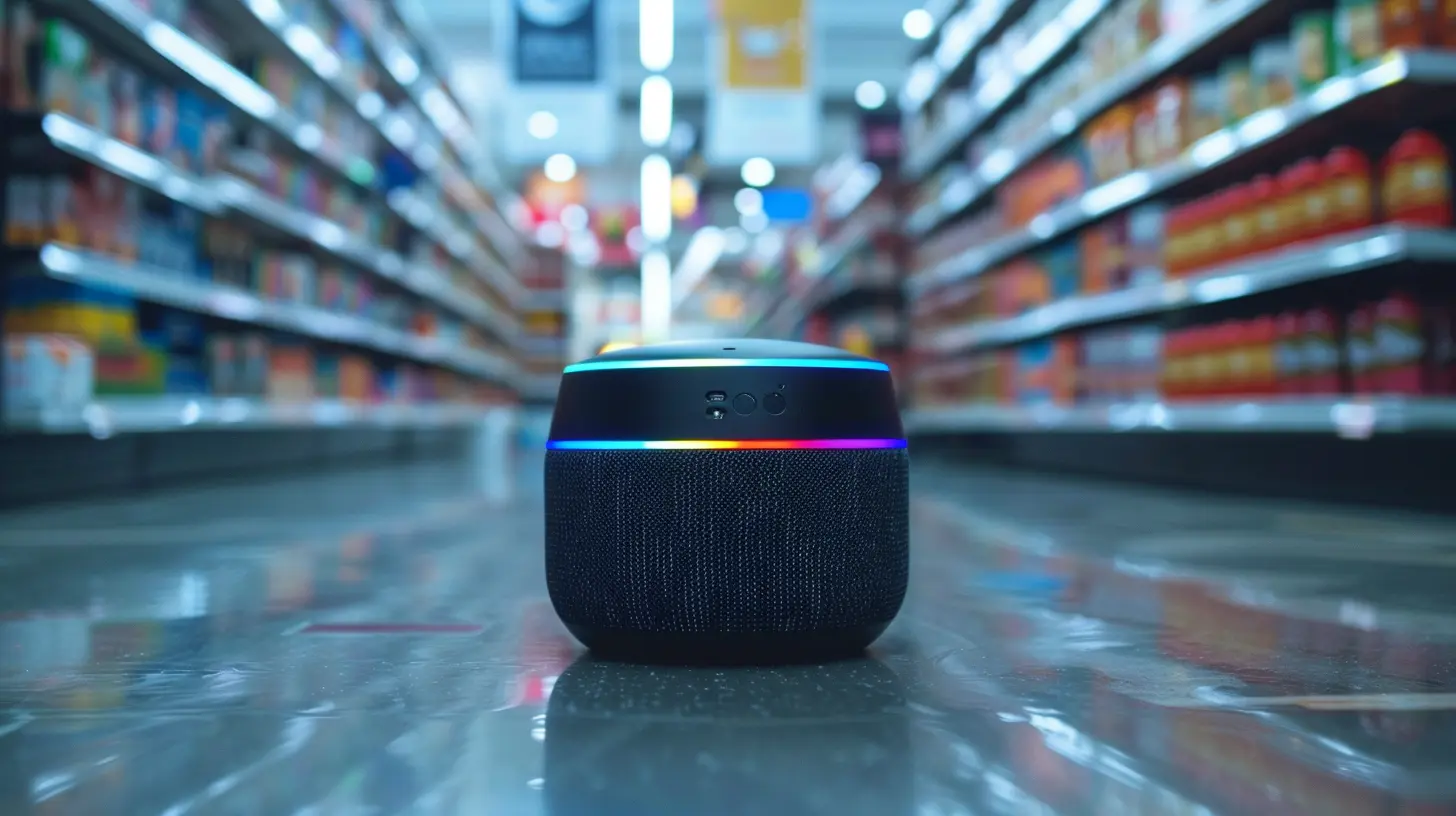The Future of Voice Search in Online Shopping
12 August 2025
The way we shop online is evolving at lightning speed. With the rise of artificial intelligence and smart technology, we’re moving towards a future where typing in a search bar might feel outdated. Instead, we’re simply asking our devices to find what we need.
Yes, voice search is taking over the e-commerce space, and if you're not paying attention, you’re already behind.
But what does this mean for online shopping? How will brands adapt? And more importantly, how will this change the way we, as consumers, shop? Let’s dive deep into the future of voice search in online shopping. 
What is Voice Search?
In simple terms, voice search is exactly what it sounds like—searching the internet by speaking instead of typing. You’ve likely already used it with Alexa, Google Assistant, or Siri. Just say, "Hey Google, find me the best wireless earbuds under $100," and voila! You get a list of options without lifting a finger.Voice search relies on advanced AI, machine learning, and natural language processing (NLP) to understand queries and provide relevant results.
And guess what? It's gaining serious traction in online shopping. 
The Rise of Voice Search in E-Commerce
Voice-activated shopping isn’t just some futuristic dream—it’s already happening. Here’s why:1. People Love Convenience
Typing is old-school—let’s be honest. Voice search allows users to multitask effortlessly. Imagine ordering groceries while cooking or buying a last-minute birthday gift while driving. No more clicking through pages of products, just a simple command, and boom—your order is placed.2. Smart Devices Are Everywhere
With the rise of smart speakers like Amazon Echo and Google Nest, voice-driven shopping is becoming second nature. According to recent reports, nearly 50% of U.S. consumers use voice assistants regularly, and a large chunk of them are using it for shopping.3. AI is Getting Smarter
Voice assistants are learning. They analyze past searches, preferences, and shopping habits to deliver better results. This means future voice searches will feel more natural and personalized. Instead of generic results, you'll get exactly what you’re looking for.
How Voice Search is Changing Online Shopping
So, how exactly is voice search transforming the way we buy products online?1. The End of Traditional Search?
Okay, maybe not the end, but it's definitely shaking things up. Right now, most of us still rely on text-based searches. But with voice search growing exponentially, businesses must optimize their websites for spoken queries rather than just written ones.For example, instead of typing "best gaming laptop 2024," a voice search might be, "Which gaming laptops under $2,000 have the best battery life?" See the difference? It’s more conversational and longer. Businesses must optimize for these long-tail keywords.
2. Shopping Becomes Hands-Free and Instant
Imagine this: You're out for a run, and you remember you ran out of protein powder. With a quick voice command, you reorder it without even stopping.Voice commerce eliminates unnecessary friction in the buying process, making online shopping faster and easier than ever.
3. More Personalized Shopping Experiences
AI-driven voice assistants provide highly personalized recommendations based on purchase history, preferences, and even mood detection (yes, that’s a thing now).For example, if you frequently buy running shoes, your voice assistant might suggest a specific model based on your past choices, current promotions, and customer reviews.
This level of personalization is the future of e-commerce. 
Challenges Voice Search Needs to Overcome
As exciting as it sounds, voice search still has hurdles to clear before it becomes the dominant online shopping method.1. Accuracy and Understanding
Voice assistants aren’t perfect. Sometimes they misinterpret words, leading to incorrect search results. This is frustrating for users and a challenge for businesses that want to ensure customers get what they need.2. Limited Screen Interaction
Unlike traditional online shopping, where users scroll through different options, voice search is more direct. If you ask Alexa to buy a pair of sneakers, she might suggest only a few options instead of an entire catalog. This limits the customer’s ability to compare products visually.3. Trust Issues with Payments
Many consumers are still hesitant to make purchases via voice search because of security concerns. Saying your credit card details aloud? That’s a big no-no for some. Companies need to develop better verification methods to ensure trust and security.Optimizing for Voice Search: What Businesses Need to Do
To thrive in the voice commerce revolution, businesses must rethink their SEO and digital marketing strategies. Here’s how:1. Focus on Conversational Keywords
Voice searches are longer and more natural than traditional searches. Instead of short, choppy phrases, people ask full questions. Businesses must optimize content for these long-tail, question-based keywords.👉 Instead of "best pizza near me", optimize for "Where can I find the best pizza in New York?"
2. Improve Website Speed & Mobile Experience
Google prioritizes fast-loading, mobile-friendly websites—even more so for voice searches. Ensure your site is optimized for speed, as most voice searches come from mobile devices.3. Utilize Schema Markup & Featured Snippets
Voice searches often pull answers from Google's featured snippets. Structuring your website’s content with schema markup can increase your chances of being the top voice search result.4. Build a Strong Local SEO Strategy
A huge chunk of voice searches is local-based. Think about how often you ask, "Where is the nearest coffee shop?" or "Which clothing store is open now?"If your business isn’t optimized for local searches, you're missing out. Update Google My Business listings, use location-based keywords, and encourage customer reviews.
The Future of Voice Search in Online Shopping
Voice search is not just a trend—it’s the future. As AI and machine learning continue to advance, voice assistants will become even more intuitive, turning online shopping into a seamless, near-instant process.We might see:
✅ Personalized AI Shopping Assistants – AI will know your tastes better than you do.
✅ Better Security Measures – Voice recognition and multi-level authentication for safer payments.
✅ Voice-Powered AR Shopping – Virtual shopping experiences where voice interactions guide purchases.
Businesses that fail to adapt will struggle, while those who embrace voice commerce will dominate the online shopping landscape.
Final Thoughts
Voice search is here to stay, and it's set to change how we shop online forever. From making shopping more convenient to delivering hyper-personalized recommendations, the possibilities are endless.For businesses, the message is clear: adapt or be left behind. With smart speakers, AI-powered voice assistants, and evolving search behaviors, the time to optimize for voice search is NOW.
So, next time you’re about to type a search query, try saying it instead. You might just be getting a glimpse into the future of e-commerce.
all images in this post were generated using AI tools
Category:
E CommerceAuthor:

Jerry Graham
Discussion
rate this article
1 comments
Patricia Wilkins
Great insights! Voice search is revolutionizing online shopping, making it more convenient for consumers. As AI evolves, we can expect even smarter and more personalized shopping experiences. Exciting times ahead!
August 19, 2025 at 3:42 AM

Jerry Graham
Thank you! I'm glad you found the insights valuable. The future of voice search truly promises to enhance convenience and personalization in online shopping. Exciting times indeed!


